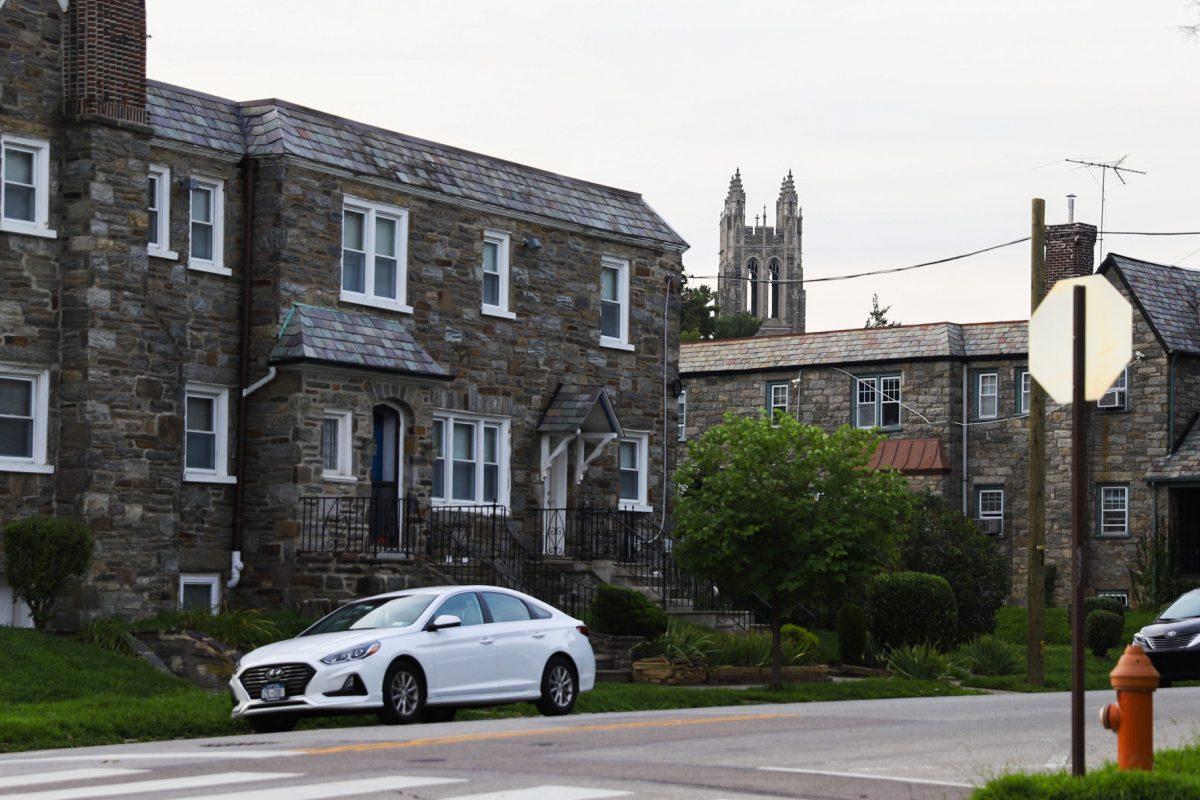Several days before campus is set to open for the fall 2020 semester, the university is ramping up its messaging about penalties for students who host and attend parties and large social gatherings.
In a welcome address emailed to the St. Joe’s community on Aug. 19, University President Mark C. Reed, Ed.D., said there is a no-tolerance policy for parties and large social gatherings both on and off campus.
“Until the pandemic and public health crisis subsides we simply must modify our behavior and do without some of the things that are part of our normal lives, and in particular part of college life,” Reed said in the address. “They put yourself, others and the entire on-campus experience at risk for everyone.”
The following day, Cary Anderson, Ed.D., vice president for Student Life and associate provost, sent an email to all St. Joe’s students and parents reiterating that infractions of the no-party policy will result in disciplinary action.
“Therefore, both on and off-campus parties will not be tolerated and will result in initiating the Community Standards process resulting in significant sanctions – up to and including suspension for individual students/hosts and loss of recognition for student organizations found responsible,” Anderson wrote in the Aug. 20 email.
Reed said in his welcome address that St. Joe’s Jesuit values call community members to be cautious about the social distancing and the Centers for Disease Control and Prevention’s mask-wearing guidelines.
“We must practice what we preach and hold each other accountable in this regard,” Reed said. “I am confident that we will.”
The College of the Holy Cross, a fellow Jesuit university, was planning to welcome their students back to campus for the fall 2020 semester. Before classes began, an off-campus party was reported to Holy Cross Public Safety officers on Aug. 15. There were multiple COVID-19 cases reported among students in attendance.
“Put simply: We will not be able to welcome back the entire campus community, or even a larger cohort than we have this fall, if students cannot demonstrate the self-discipline, mutual respect, and care for others by following requirements to prevent the spread of COVID-19,” Michele C. Murray, Ph.D., Vice President of Student Affairs and Dean of Students, said in an email to the Holy Cross campus community on Aug. 18.
The university made the announcement to go fully online on Aug. 10.
Other universities, like Syracuse University and The University of Pittsburgh, have similarly responded to large social gatherings and parties and issued disciplinary measures to those involved, according to emails sent out by each university.
The University of North Carolina Chapel Hill (UNC) took action a step further and made the decision to conduct the fall semester fully online only a week into the semester after four COVID-19 clusters were identified on campus, many of which were linked to off-campus parties. At UNC, three of the four COVID-19 clusters were identified in residence halls and one at the Sigma Nu fraternity house, according to the Daily Tar Heel.
Prior to their arrival on campus, members of the St. Joe’s community are required to sign the iCare Pledge, which says students will uphold the university’s proposed Health and Safety Plan during the semester which includes maintaining a safe social distance on and off-campus.
Testing is not mandatory for students planning to live on campus.
Emma Woods ’21 is living off-campus for her senior year. Woods said she feels St. Joe’s is doing what it can to prevent the spread of COVID-19, but the new rules may be an adjustment for many students.
“There are obviously rules on campus that we haven’t been able to ask students to abide by before,” Woods said. “[It] may be hard to enforce. I know not everyone is as concerned about their health as they could be.”
Hadley Champe ’22 said she has felt safe all summer living in her house right off campus because of the health and safety precautions St. Joe’s and Philadelphia have in place. Champe, who will be living off campus this fall, said the in-person semester will pose a challenge to incoming students.
“Everybody’s been cooped up for months and people want to see their friends and do things as you would do in college,” Champe said. “ To a certain extent everyone’s going to really try hard just because we want to stay here, and we don’t want to be sent home, but I do think it’s going to be a challenge for everyone.”



















































